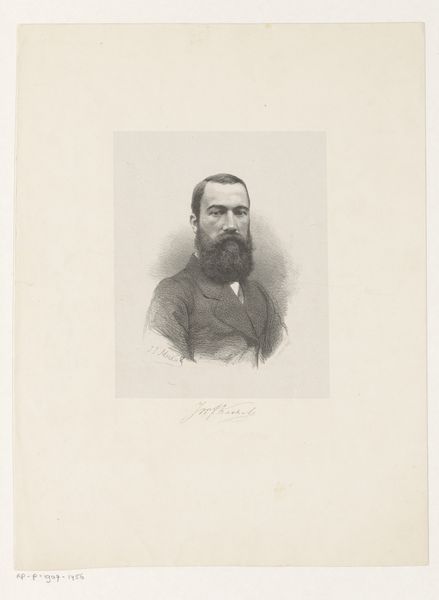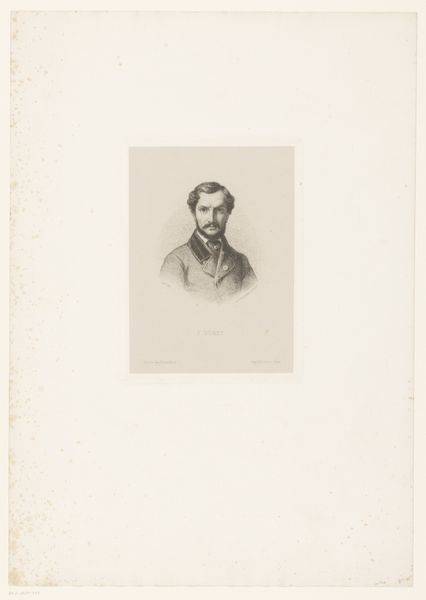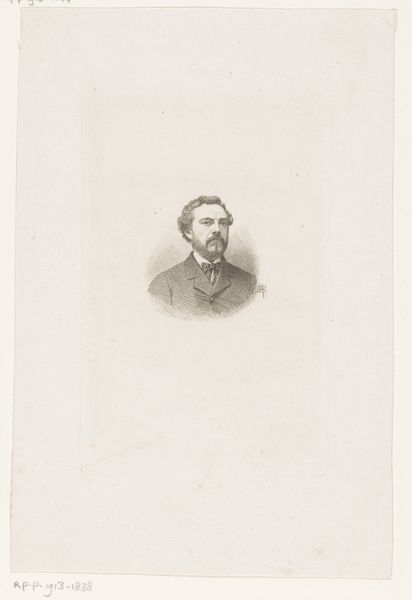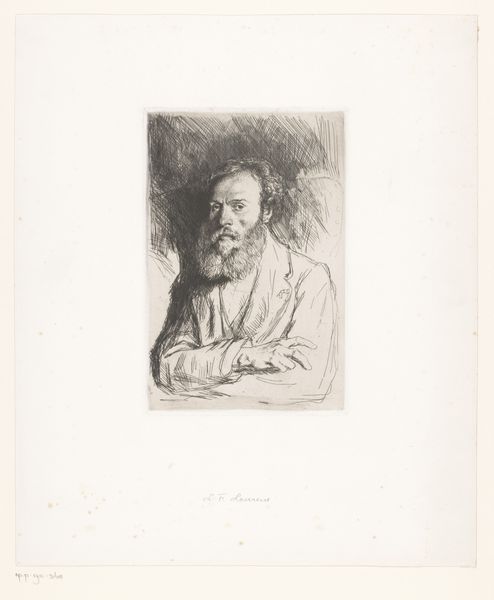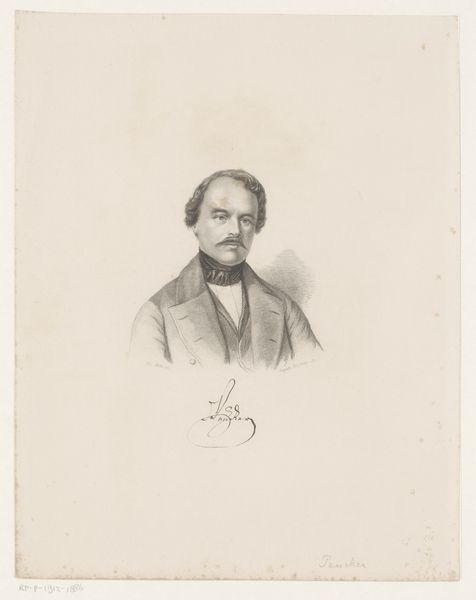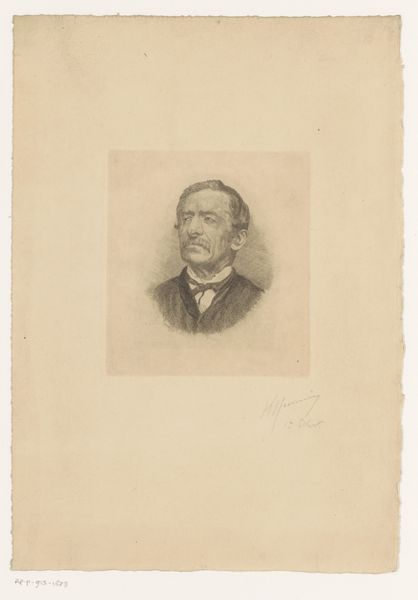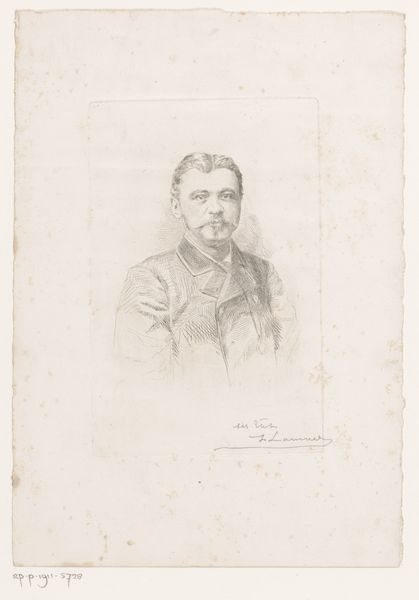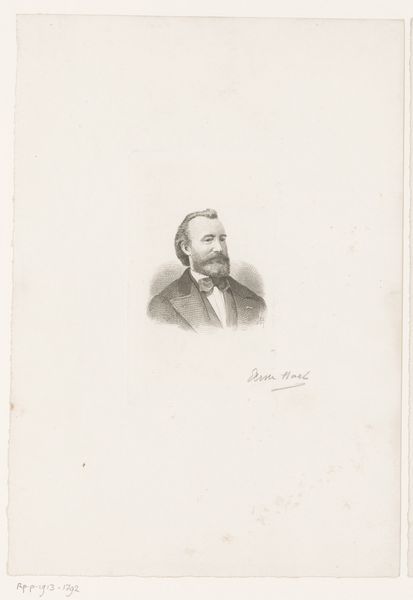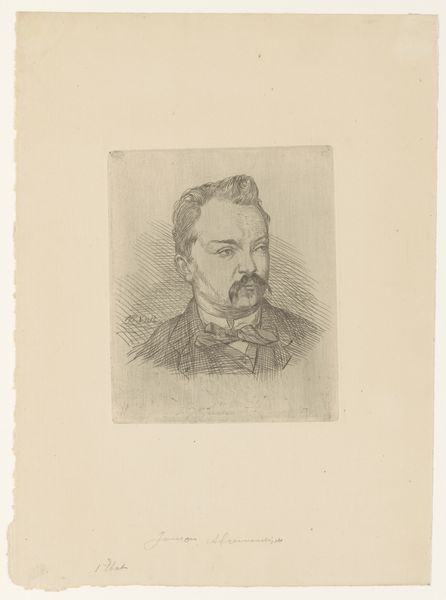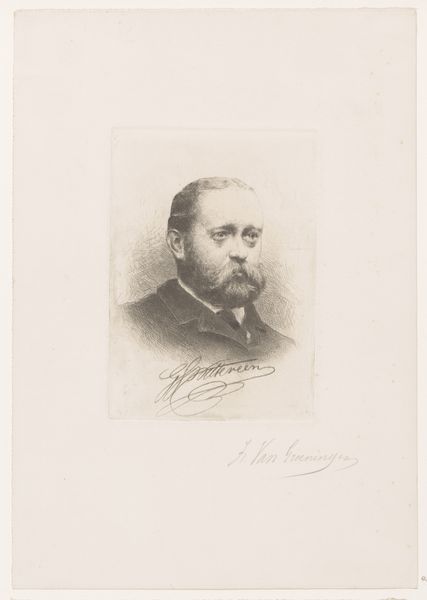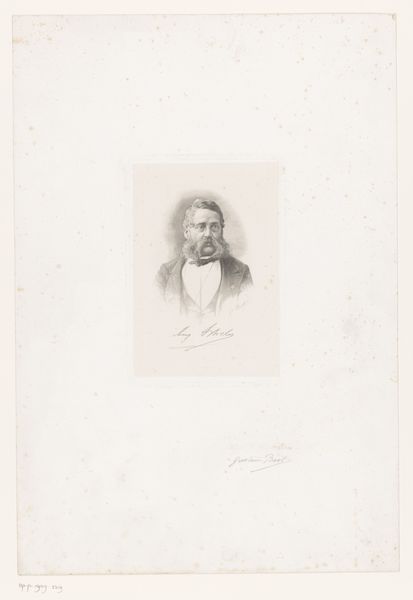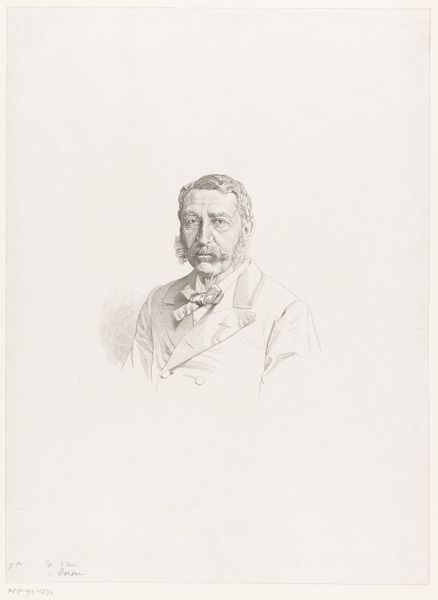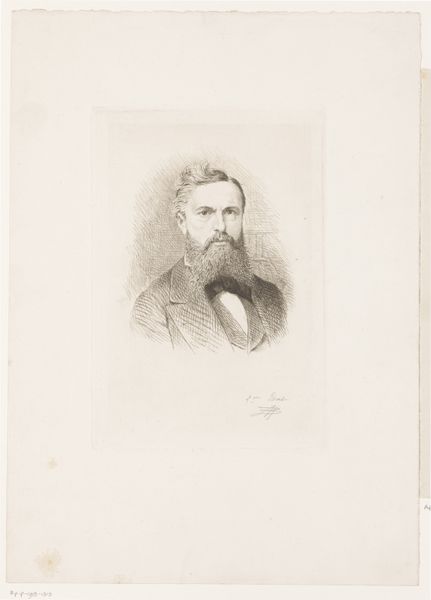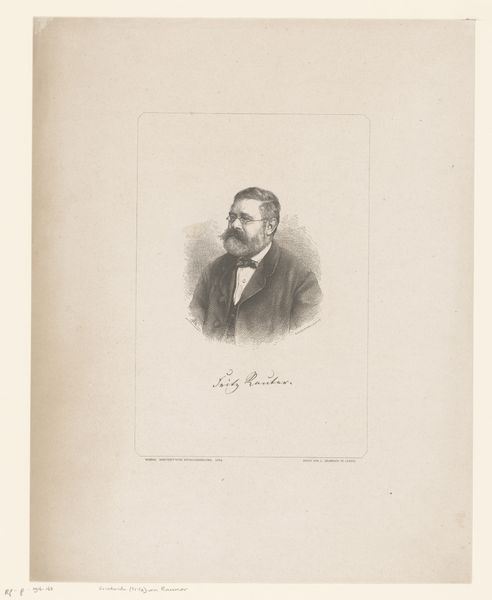
drawing, pencil, engraving
#
portrait
#
pencil drawn
#
drawing
#
light pencil work
#
pencil sketch
#
pencil drawing
#
pencil
#
pencil work
#
academic-art
#
engraving
Dimensions: height 197 mm, width 142 mm
Copyright: Rijks Museum: Open Domain
Curator: We're now looking at Léopold Flameng's "Portret van Émile-Louis Galichon," created sometime between 1841 and 1910. It's a portrait executed in pencil and engraving. Editor: It feels incredibly light, almost ethereal. The delicate lines give it an airy quality, as if it could float away at any moment. The structure, despite the softness, is still very formal. Curator: Flameng was known for his skill as an engraver and portraitist. What interests me here is the medium itself. Pencil, in the hands of a master like Flameng, allows for an incredible range of tonal variation. You see how he uses hatching and cross-hatching to build up the forms and create a sense of volume. Editor: Absolutely, and I think it speaks to a particular kind of labor—the painstaking process of building up this image, layer by layer. You can almost feel the artist's hand at work, meticulously crafting each line. And the way he renders the fabric of the coat, you get a real sense of the textile. Curator: The use of line and the implied texture work together to create not only a likeness but also a representation of status. Notice how he captures the gentleman's demeanor; the way his eyes hold the viewer, yet with a subtle reserved quality. This control, or what could be seen as rigid adherence to academic artistic practices, in constructing his likeness and form also contributes to the psychological narrative. Editor: That focus on status is precisely what I see—the materials, the process, the sheer time involved in creating something like this would have been accessible only to a select few. So even though the drawing appears 'simple,' it communicates layers of meaning concerning production, labour, and class. It reveals the dynamics and expectations associated with portraiture of that period. Curator: A compelling example of how technique and visual elements converge to express character. It gives you more than just a snapshot, you know. Editor: It certainly highlights how artmaking practices and choices, consciously and unconsciously, reflect underlying social systems.
Comments
No comments
Be the first to comment and join the conversation on the ultimate creative platform.
